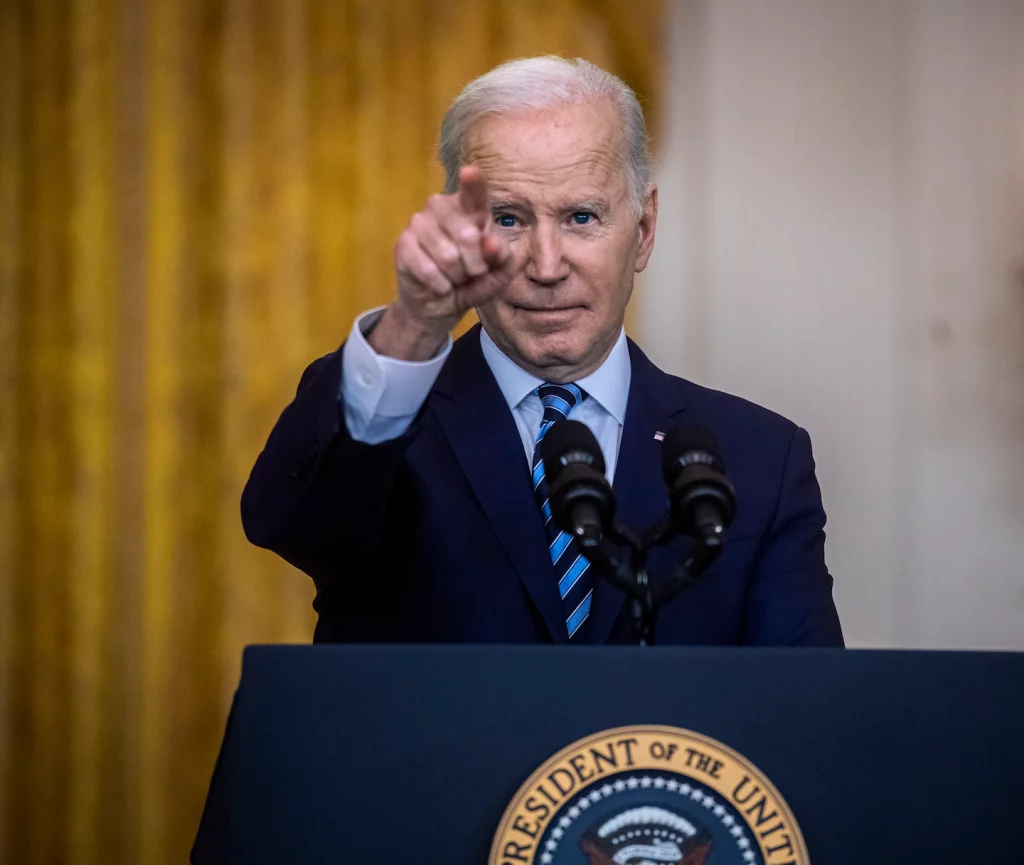Putin has set out on a path aimed at destroying Ukraine. European Commission President Ursula von der Leyen said on Saturday that what he is also doing is in fact destroying the future of his country.
In response, she said, “We will paralyze the assets of the Central Bank of Russia. This will freeze its transactions. It will make it impossible for the Central Bank to liquidate the assets.”
In a joint statement issued by European countries, the United States, Britain and Canada, the nations announced that they had reached agreement on what appeared to be unprecedented measures “to ensure that this war is Putin’s strategic failure.”
“As Russian forces launch their attack on Kiev and other Ukrainian cities, we are determined to continue imposing costs on Russia that will further isolate Russia from the international financial system and our economies,” the statement said. “We will implement these measures in the coming days.
The Russian Central Bank holds more than $640 billion in foreign exchange reserves, much of it in the computers of Western central banks in cities like New York, London and Frankfurt. Efforts to freeze or isolate those funds are likely to put enormous pressure on Russia, one of the world’s largest economies. and nuclear power. This could lead to domestic unrest, triggering a wave of banks, causing a collapse in the ruble, and panicking Russian companies.
“We are committed to imposing restrictive measures that prevent the Russian Central Bank from deploying its international reserves in ways that undermine the impact of our sanctions,” the United States and its allies said in the joint statement.
SWIFT is an acronym for Society for Global Interbank Financial Telecommunication, a messaging network that connects banks around the world. The Belgium-based consortium links banks in 200 countries and is used as money to be transferred through the banking system. Last year, SWIFT averaged 42 million messages per day.
President Biden was asked by reporters several days ago why the White House had not decided to restrict Russia’s access to the Swift system, and said that the idea was under study but that some European countries had not yet agreed to take such a step.
Europe’s calculus appears to have changed in the past few days as Russian attacks in Ukraine continue. While under siege in Kiev, President Volodymyr Zelensky appealed to the West to cut Russia off from the Swift regime, urging in particular Germany and Hungary to do so.
In their joint statement, the United States, Canada and European allies said, “We are committed to ensuring that selected Russian banks are removed from the SWIFT messaging system. This will ensure that these banks are disconnected from the international financial system and harm their ability to operate globally.”
The statement did not specify which “selected Russian banks” would be removed, and the statement indicated the possibility of exempting some Russian banks from the measure.
Michael S. said: Bernstam, a researcher at Stanford University’s Hoover Institution, said full and immediate sanctions on the Russian Central Bank would not be the only most effective financial punishment, but the only one, in his view, that could push Moscow to do so. withdraw from its invasion of a neighboring country.
White House Sanctions have already been imposed on the largest banks in RussiaBut Moscow may try to use its huge foreign exchange reserves to prop up those banks for a while. Removing this option, he said, would cripple Moscow’s ability to bail out its banks.
Bernstam said that cracking down on the central bank could lead to Russian people and companies “rushing for dollars”. He added, “They will rush to exchange offices and banks to get the $20 and $50 bills, but there will not be enough. So there will be a big panic, a rush for the dollar. And the exchange rate will collapse.”
The White House has so far relied on imposing sanctions against certain individuals and companies in Russia as a way to create financial pressures. Targeting the Russian Central Bank is an even more urgent step. A freeze on the reserves of the Russian Central Bank could also result in The Kremlin was prevented from using its large financial reserves as a cushion for the mounting costs of the war, with the initiation of US and European sanctions.
If you do it in a coordinated way, you will impose huge costs on the Russian state. “This would say in one fell swoop that all of Russia’s reserves are closed and no longer usable,” said Richard Nephew, a senior researcher at Columbia University.
It could have a devastating effect on the Russian economy. It will be seen as a massive escalation regardless.”
But the strategy is not without risks. The United States has never taken this step against any country that has nuclear weapons. The Kremlin could respond by escalating hostilities against Ukraine.
Mark Weisbrot, a liberal economist and co-director of the Center for Economics and Policy Research, warned that targeting the Russian Central Bank could be a mistake. This situation is dangerous and needs de-escalation to reach a diplomatic solution. If there is one thing that recent events have made clear, he said, it is that threats to deter military force or deter it with economic sanctions do not work. “And if implemented, these threats have additional costs on all parties.”
The joint statement of the United States and its allies included three other commitments.
The countries said they would take action against people and entities responsible for the war in Ukraine and “the harmful activities of the Russian government.” They said they would “reduce the sale of citizenship – so-called golden passports – that allow wealthy Russians connected to the Russian government to become citizens of our countries and access our financial systems.”
In addition, they said they were forming a task force aimed at ensuring that sanctions are effectively implemented.
“As part of this effort, we are committed to applying sanctions and other financial and enforcement measures to additional Russian officials and elites close to the Russian government, as well as their families, and enablers to identify and freeze the assets they hold at our site,” the statement said.
The statement also vowed to escalate. [our] Coordination against disinformation and other forms of hybrid warfare.

“Writer. Evil travel maven. Avid creator. Proud beer expert. Music lover. Explorer.”











More Stories
Jake Sullivan meets Yang Jiechi in Luxembourg, paving the way for a possible meeting between Biden and Xi
The CDC adds 3 places to its “high” risk list, including Mexico and the United Arab Emirates
Wordle 359 June 13 – Struggling with Wordle today? THREE CLUES TO HELP ANSWER | Games | entertainment